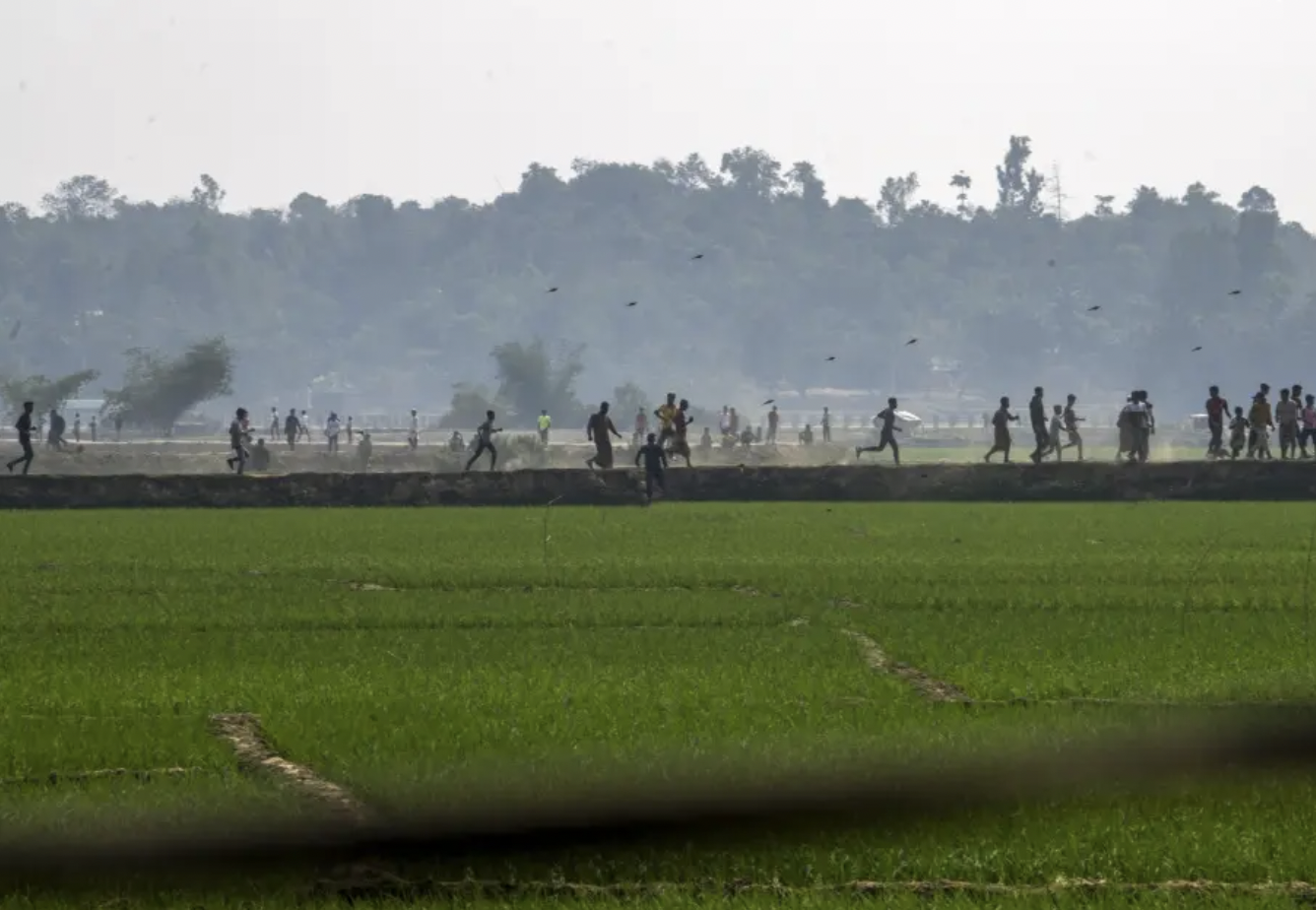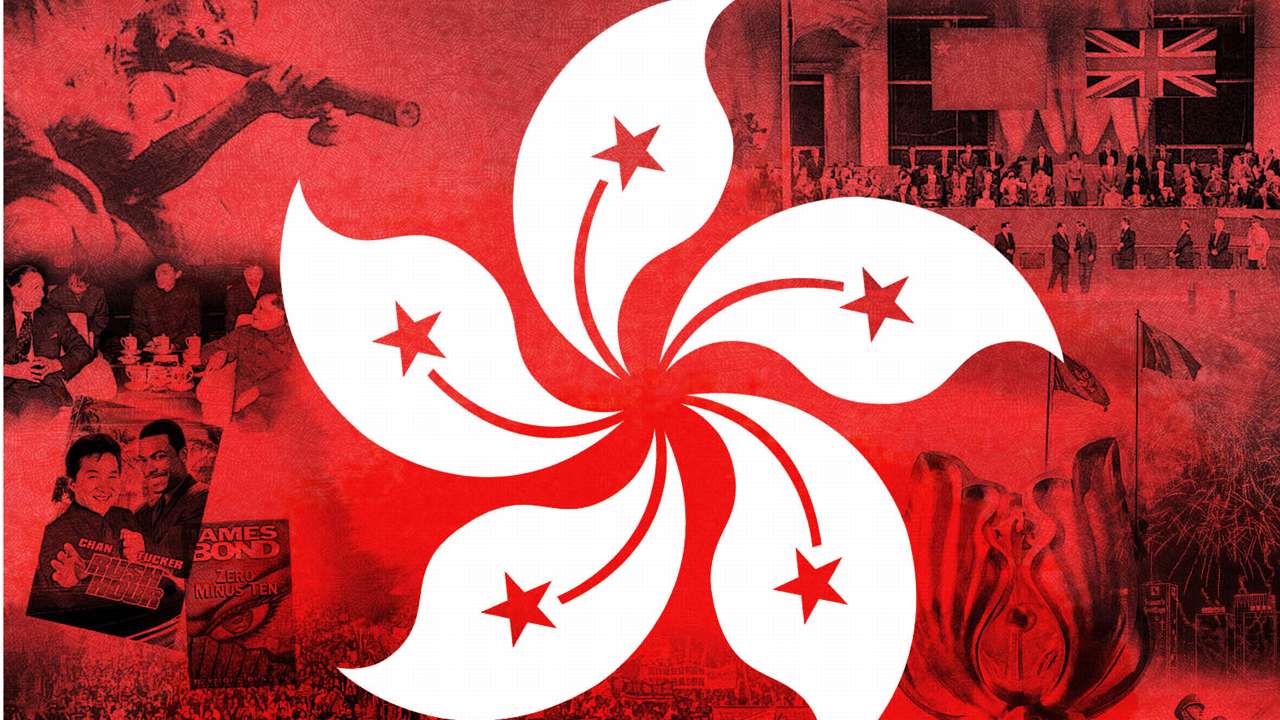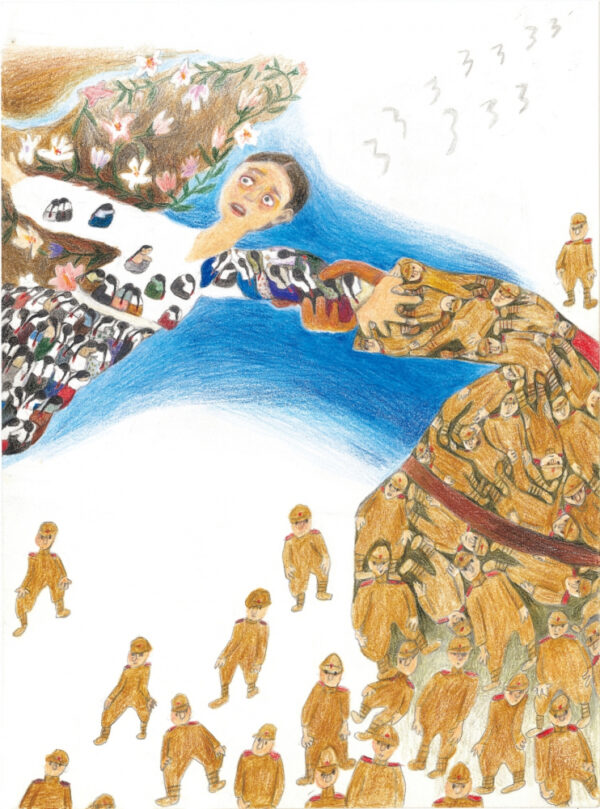In 2017, the Myanmar military supported by militias launched a campaign against the Rohingya, Muslim minorities living in Buddhist-majority Myanmar, murdering thousands and forcing 700,000 to flee Rakhine state for Bangladesh.1 In March 2022, the United States’ secretary of state, Antony Blinken, formally declared the atrocities in Myanmar as a genocide at the Holocaust Memorial.2 The United States’ decision to name the ethnic cleansing in Myanmar by its proper name made a substantial difference to the Rohingya.3 The Rohingya saw public recognition of their suffering and loss as a watershed moment—countries all over the world began to support the Rohingya minorities. The US contributed more funding to the Genocide Convention for Myanmar,4 Bangladesh took in Rohingya refugees,5 and the International Court of Justice (ICJ) established the case of Application of the Convention on the Prevention and Punishment of the Crime of Genocide (The Gambia v. Myanmar),6 to condemn Myanmar’s ethnic cleansing since 2016 for violating the Genocide Convention.7
It has been more than two years since the recognition of the mass genocide of the Rohingya and although there has been much progress made,8 this violence persist today. Although Canada, Denmark, France, Germany, the Netherlands, the United Kingdom, and the Maldives joined the ICJ case against Myanmar in November 2023,9 the international community comprised of international organizations and nation states, have failed to take proactive measures to assist and protect the Rohingya as well as condemn the genocide in Myanmar due to institutional deadlock and disinterest. In terms of institutional deadlock, organizations like the United Nations (UN) General Assembly face a lack of legally binding decisions,10 and the Organization of Islamic Cooperation (OIC) fails to intervene militarily in Burma, because it does not have exclusive power to act and needs support and approval from the United Nations Security Council.11 Additionally, China and Russia’s reluctance to involvement on diplomatic actions towards the Rohingya Genocide has contributed to increasing lack of consensus and disinterest about the topic on international agendas, hindering the ability of actors to address the Rohingya Genocide effectively.12
Today, the sufferings of the Rohingyas continue, as their paths out of Myanmar’s genocide have become forgotten.
In March, the United Nations reported on the dangerous increase in “indiscriminate use” of artillery in residential areas of Rakhine state attributed to the war between the Myanmar military and the rebel Arakan.13 The artillery shells have already killed numerous Rohingya civilians and there is deep concern for the rise in military violence against Rohingya civilians in Myanmar’s Rakhine state.14 However, the international community has remained notably quiet. One international organization that could take more action but has not, is the Association of Southeast Asian Nations (ASEAN), specifically the ASEAN Intergovernmental Commission on Human Rights (AICHR), which exists to promote and protect human rights.15 Unfortunately, the AICHR adheres to ASEAN’s fundamental principle of non-interference. As an international institution, it failed to respond to Myanmar and take significant efforts to reduce human rights violations against the Rohingya people through sanctions and boycotts.16
Another international organization that has placed the Myanmar Genocide on the backburner, is the United Nations Security Council (UNSC). Despite the appeal to the USNC to protect the Rohingya people from further harm, the UNSC placed the genocide to the agenda under “any other business,” revealing that the Rohingyas were not on their priority list and contradicting the UN’s overarching international mission.17 Additionally, since China, Russia, and the US did not sign the veto restraint movement to not veto “any credible draft resolution intended to prevent mass atrocities,”18 it has been difficult to create a UN intervention resolution to uphold human rights and protect victims from genocide.19
Even the Rohingya who fled Myanmar fearing their lives, face extreme issues in the countries they are in, like Bangladesh. One pressing issue is poverty because the UN had to cut food rations to the world’s largest refugee camp for the Rohingya, Cox’s Bazar,20 located in Bangladesh last year because of the lack of funding, and this has imposed more insecurities on the vulnerable Rohingya.21 In addition, there is a restricted access to quality education and employment opportunities for the Rohingya in Bangladesh because the Bangladesh government continues to restrict access to resources, hindering the Rohingya peoples’ ability to gain full independence.22 There are also a smaller, but nonetheless significant number of Rohingya refugees facing similar issues in Malaysia, Indonesia, Thailand, and India, because these countries do not uphold basic protections for the refugees.23 These countries sometimes do not allow the Rohingya people seek refuge in their countries by “refusing to let them disembark from their boats”24 or threatening them with violence, indefinite detention or deportation back to Myanmar.25 Sullivan and Khin write that “the path out of genocide should not lead through fire, violence, and desperate journeys by sea, nor send its victims back to living under a murderous regime,”26 but due to the international community’s lack of action, the Rohingya continue to face challenges, being kept in the vicious cycle of vulnerability and dangers.
With the genocide in Gaza threatening the principle of human rights in international relations today, it is paramount that the international community continues to uphold such beliefs. The Myanmar Genocide which had once received lots of international attention, has dwindled in international efforts since 2020,27 making people believe that it has come to an end. Still to this day, the Myanmar government refuses to accept that their acts of violence were genocidal, and the lack of conversation about the ongoing crisis in Myanmar, dismisses the suffering the Rohingya people continue to face.
Numerous academics urge the international community to intensify and coordinate pressure on Myanmar’s military by imposing sanctions on the country’s oil industry and preventing the importation of aviation fuel, which enables the military to launch catastrophic airstrikes against civilians.28 Even in the instance that China and Russia veto actions, the UNSC must engage in diplomatic measures to maintain awareness and dialogue regarding the Rohingya.29 Furthermore, if the US genuinely wishes to assist survivors of genocide, it must also take the lead in defending and assisting the Rohingya people.30
As the genocide remains a lasting scar on the collective memory of the Rohingya people, it falls upon the international community not merely to acknowledge its occurrence but to actively remember it. This remembrance is not solely for the protection of the Rohingya, but as a steadfast commitment to safeguarding human rights and preserving the fundamental tenets of the liberal international order.
Grace Choi is a second-year student specializing in International Relations. Born in South Korea, Grace has always been passionate about history and diplomacy, especially within the Asian periphery. Currently, Grace is writing a research paper on Filipino Nationalism and drafting compliance reports about gender equality as a Compliance Analyst for the G20 Research Group. Her main areas of interest are national and international affairs, history and law, as well as foreign policies surrounding conflict and security, environmental sustainability, state building, and gender equality.
Bibliography
Ahmed, Kaamil. “UN Warns of ‘unconscionable’ Cuts to Rohingya Food Rations as Donations Fall.” The Guardian, February 17, 2023. https://www.theguardian.com/global-development/2023/feb/17/un-warns-of-unconscionable-cuts-to-rohingya-food-rations-as-donations-fall.
Application of the Convention on the Prevention and Punishment of the Crime of Genocide (The Gambia v. Myanmar). Accessed March 17. https://www.icj-cij.org/case/178.
Borger, Julian. “US Declares Myanmar Army Committed Genocide against Rohingya.” The Guardian, March 21, 2022. https://www.theguardian.com/world/2022/mar/21/us-to-declare-myanmar-army-committed-genocide-against-rohingya#:~:text=The%20US%20has%20declared%20Myanmar%E2%80%99s,has%20been%20committed%20seven%20times.
Khin, Tun, and Daniel P. Sullivan. “One Year on, Rohingya Path out of Genocide Remains Unclear.” Newsweek, March 21, 2023. https://www.newsweek.com/one-year-rohingya-path-out-genocide-remains-unclear-opinion-1789382.
Nu, Wai Wai, and Naomi Kikoler. “One Year after US Genocide Determination, Rohingya Community Remains at Risk.” United States Holocaust Memorial Museum. Accessed May 13, 2024. https://www.ushmm.org/genocide-prevention/blog/one-year-after-us-genocide-determination-rohingya-community-remains-at-risk.
Ratcliffe, Rebecca. “Who Are the Rohingya and What Is Happening in Myanmar?” The Guardian, September 6, 2017. https://www.theguardian.com/global-development/2017/sep/06/who-are-the-rohingya-and-what-is-happening-in-myanmar.
Sharp, Alexandra, and Robbie Gramer. “The U.S. Has Recognized Myanmar’s Genocide. But Is That Enough?”
Foreign Policy, March 24, 2022. https://foreignpolicy.com/2022/03/24/myanmar-genocide-rohingya-us-recognition/.
“TALKING FOREIGN POLICY – OCTOBER 1, 2019, BROADCAST: ‘THE ROHINGYA GENOCIDE’ 1.” Case Western Reserve Journal of International Law 52, no. 1/2 (2020): 543–71.
“The Guardian View on the Forgotten Rohingya Refugees: Lives without Futures | Editorial.” The Guardian, March 19, 2023. https://www.theguardian.com/commentisfree/2023/mar/19/the-guardian-view-on-the-forgotten-rohingya-refugees-lives-without-futures.
“World News in Brief: Syria Violence Intensifying, Heavy Weapons Threat in Myanmar, Justice Call for Thai Lawyer.” United Nations, March 11, 2024. https://news.un.org/en/.
Zahed, Iqthyer Uddin. “Responsibility to Protect? The International Community’s Failure to Protect the Rohingya.” Asian Affairs 52, no. 4 (August 8, 2021): 934–57. https://doi.org/10.1080/03068374.2021.1999689.
- “The Guardian View on the Forgotten Rohingya Refugees: Lives without Futures | Editorial,” The Guardian, March 19, 2023, https://www.theguardian.com/commentisfree/2023/mar/19/the-guardian-view-on-the-forgotten-rohingya-refugees-lives-without-futures. ↩︎
- Julian Borger, “US Declares Myanmar Army Committed Genocide against Rohingya,” The Guardian, March 21, 2022, https://www.theguardian.com/world/2022/mar/21/us-to-declare-myanmar-army-committed-genocide-against-rohingya#:~:text=The%20US%20has%20declared%20Myanmar%E2%80%99s,has%20been%20committed%20seven%20times. ↩︎
- “TALKING FOREIGN POLICY – OCTOBER 1, 2019, BROADCAST: ‘THE ROHINGYA GENOCIDE’ 1.” Case Western Reserve Journal of International Law 52, no. 1/2 (2020): 543–71. ↩︎
- Borger, “US Declares Myanmar Army Committed Genocide against Rohingya,” The Guardian. ↩︎
- “The Guardian View on the Forgotten Rohingya Refugees: Lives without Futures,” The Guardian. ↩︎
- Application of the Convention on the Prevention and Punishment of the Crime of Genocide (The Gambia v. Myanmar), https://www.icj-cij.org/case/178. ↩︎
- Borger, “US Declares Myanmar Army Committed Genocide against Rohingya,” The Guardian. ↩︎
- Alexandra Sharp and Robbie Gramer, “The U.S. Has Recognized Myanmar’s Genocide. but Is That Enough?”, Foreign Policy, March 24, 2022, https://foreignpolicy.com/2022/03/24/myanmar-genocide-rohingya-us-recognition/. ↩︎
- Application of the Convention on the Prevention and Punishment of the Crime of Genocide (The Gambia v. Myanmar). ↩︎
- “TALKING FOREIGN POLICY – OCTOBER 1, 2019, BROADCAST: ‘THE ROHINGYA GENOCIDE’ 1,” 562-63. ↩︎
- Iqthyer Uddin Zahed, “Responsibility to Protect? The International Community’s Failure to Protect the Rohingya,” Asian Affairs 52, no. 4 (August 8, 2021): 948, https://doi.org/10.1080/03068374.2021.1999689. ↩︎
- Iqthyer Uddin Zahed, “Responsibility to Protect? The International Community’s Failure to Protect the Rohingya,” 950. ↩︎
- “UN News | World News in Brief: Syria Violence Intensifying, Heavy Weapons Threat in Myanmar, Justice Call for Thai Lawyer,” United Nations, March 11, 2024, https://news.un.org/en/. ↩︎
- “UN News | World News in Brief: Syria Violence Intensifying, Heavy Weapons Threat in Myanmar, Justice Call for Thai Lawyer,” United Nations. ↩︎
- Zahed, 938-39. ↩︎
- Ibid. ↩︎
- Zahed, 944-45. ↩︎
- Ibid. ↩︎
- Ibid. ↩︎
- “The Guardian View on the Forgotten Rohingya Refugees: Lives without Futures | Editorial.” ↩︎
- Kaamil Ahmed, “Un Warns of ‘unconscionable’ Cuts to Rohingya Food Rations as Donations Fall,” The Guardian, February 17, 2023, https://www.theguardian.com/global-development/2023/feb/17/un-warns-of-unconscionable-cuts-to-rohingya-food-rations-as-donations-fall. ↩︎
- Tun Khin and Daniel P. Sullivan, “One Year on, Rohingya Path out of Genocide Remains Unclear,” Newsweek, March 21, 2023, https://www.newsweek.com/one-year-rohingya-path-out-genocide-remains-unclear-opinion-1789382. ↩︎
- Tun Khin and Daniel P. Sullivan, “One Year on, Rohingya Path out of Genocide Remains Unclear.” ↩︎
- Ibid. ↩︎
- Ibid. ↩︎
- Ibid. ↩︎
- Zahed, 934-57. ↩︎
- Ibid. ↩︎
- Zahed, 938-39. ↩︎
- Khin and Sullivan. ↩︎








